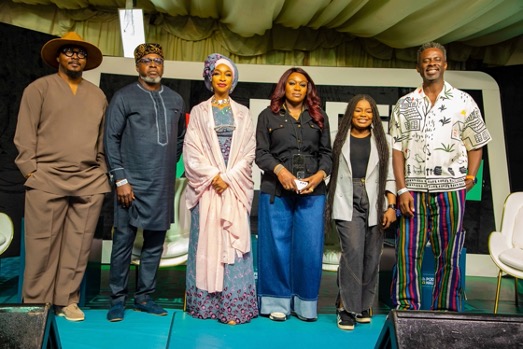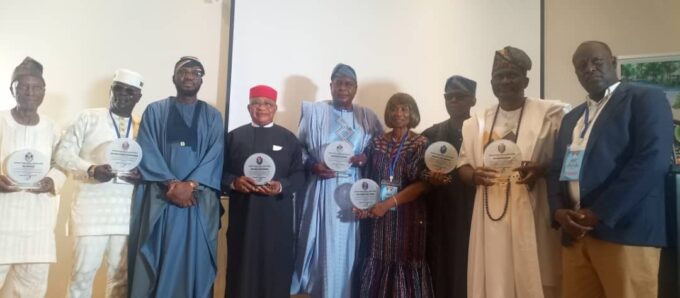Why do we take pleasure in someone else’s fall, particularly those we envy? Vanessa Obioha explores the science behind it.
When news broke of the fallout between actress Regina Daniels and her husband, Ned Nwoko, the internet lit up with glee. Comment sections overflowed with more mockery than sympathy.
“Ehen, I talk am.”
“All that glitters is not gold.”
“Let her cry o, because she once said she’d rather cry in a Ferrari.”
“How can she expect peace when she married her grandfather and became the sixth wife?”
Everyone suddenly had an opinion, and not all were kind. Overnight, many turned into marriage counsellors, dishing out unsolicited advice. Others became amateur detectives, digging into her past as though they were harvesting yams.
It didn’t end there. Misinformation quickly followed, especially after Nwoko released a statement on X (formerly Twitter), accusing his wife of drug and alcohol addiction, and sharing photos of alleged domestic damage. Soon, fake posts surfaced, boldly claiming to know her whereabouts. One particularly vicious rumour alleged that Annie Idibia, ex-wife of musician Innocent “2Baba” Idibia, was Regina’s drug supplier—an unfounded claim that spread simply because Nwoko had mentioned a certain “Ann” in his statement.
In all of this hullabaloo lies an unsettling truth: in today’s viral age, schadenfreude, the pleasure derived from another’s misfortune, has become a kind of social power. We wield it to mock those we believe have more than we do. In this context, “more” often means status, wealth, or privilege; the things many quietly desire while scrolling through curated lives on social media.
These feelings stem from various triggers. In a 2020 study, Christian Cecconi, Isabella Poggi, and Francesca D’Errico explored the typology of schadenfreude in social media interactions. Building on earlier research by Cecconi (2017), they identified four types of emotional triggers:
Aversion: A sense of dislike for another when he/she undergoes an unfortunate event. (E.g., I experienced Schadenfreude when a person I disliked failed an exam).
Injustice: When an unfortunate event happens to someone who committed an unfair act or gained an undeserved advantage. (E.g., I felt Schadenfreude when a person who betrayed a friend of mine was betrayed by his girlfriend.
Identification: When a misfortune hits someone with whom we are in direct rivalry/competition. (E.g., I felt Schadenfreude when a rival team of the one I cheered for lost a game).
Compensation: When another suffers the same unfortunate event that we suffered. (E.g., I felt Schadenfreude when my boss denied a day off to me. On the day I had asked for, the weather was bad, so no one enjoyed that day).
Note: Examples given above were cited in the authors’ article
Overall, the authors found that schadenfreude falls into three macro categories: Aversion, Injustice and Image (identification and compensation). They defined schadenfreude as “a positive emotion, a kind of relief that we feel when some damage occurs to others, due to either an external negative event or to their own or other people’s action, which brings about a rebalance with respect to unjust actions performed by others, or undeserved actual or foreseen unbalance between us and them.”
From the flood of online reactions to Regina and Ned’s troubles, more than one type of schadenfreude was clearly at play. Some disliked Regina simply because she was young and fortunate enough to marry a wealthy man. Her life, glimpsed through glossy social media posts, embodied what many envy. So her misfortune became a toast to poetic justice.
Others, in similar fairytale situations, viewed her as competition.
“She got a new Ferrari? Then I need one too.”
“Her home isn’t even that beautiful.”
Such comments reflect not just rivalry, but an insecurity born of material obsession, a desire to feel superior by comparison, if only briefly.
And then there are those whose own relationships failed, who believe others shouldn’t fare better. Their ridicule masks resentment: if I suffered, why shouldn’t she?
Still, some people’s reactions stem from disbelief rather than malice. To them, Regina’s story was always too perfect to be true. How could a young woman find lasting happiness with an older man? How could wealth coexist with peace in a crowded marriage? For such minds, misfortune is proof that perfection doesn’t exist. So they wait, almost expectantly, for the fall.
Maybe they’re right: nothing is ever perfect. But why do we focus more on the cracks than the light that filters through them? Why do we wait to see people fall instead of hoping they rise?
As professors Susan Fiske and Mina Cikara discovered in their research, schadenfreude isn’t just moral, it’s also biological. Through experiments measuring facial muscle movements, they found that people literally smile more when misfortune befalls those they envy.
“We found that people did smile more in response to negative than positive events, but only for groups they envied,” said Fiske.
“A lack of empathy is not always pathological. It’s a human response, and not everyone experiences this, but a significant portion does,” Cikara said.
Humans, it seems, are wired to feel flashes of schadenfreude, even when we pretend indifference. Yet social media has magnified these impulses by rewarding cruelty disguised as humour and validation dressed as virtue.
It might offer temporary relief but it changes nothing about our lives.
In the end, our laughter at others’ pain only reveals how much we wish we were standing where they once stood.


















Leave a comment